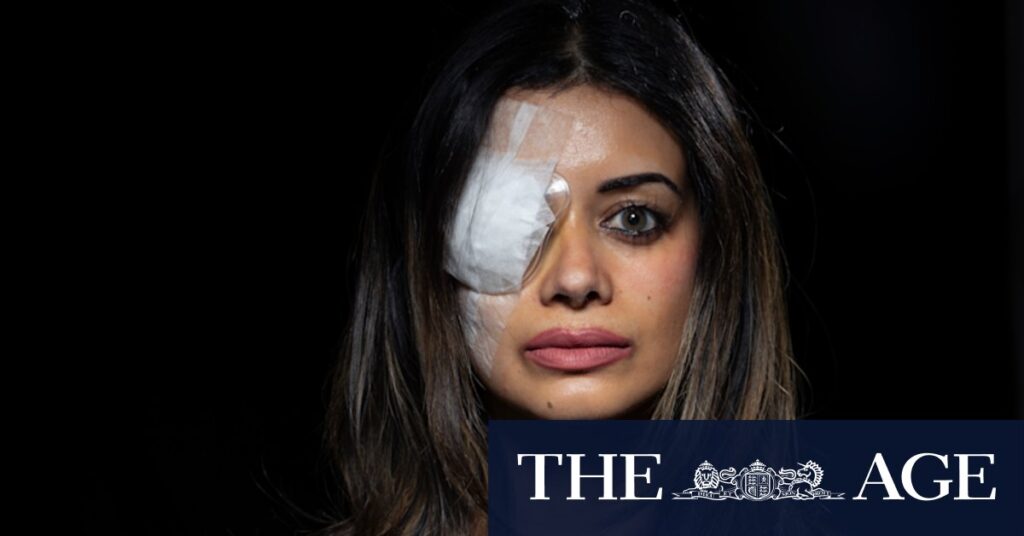
A former Greens candidate, Hannah Thomas, has been advised to “prepare for the worst” after sustaining a serious eye injury during an anti-Israel protest in Sydney last month. The injury, which occurred on June 27, has left her facing the possibility of permanently losing vision in her right eye as she prepares for a second round of surgery.
Thomas, who contested against Prime Minister Anthony Albanese in the Grayndler electorate during the May election, was injured when police intervened in a demonstration outside SEC Plating in Belmore. The business is alleged by protesters to provide services for F-35 jets used by the Israeli Defence Forces. Thomas was among five individuals arrested during the protest.
The incident has sparked significant debate, particularly after video footage of the protest surfaced, seemingly contradicting police accounts and highlighting a lack of clarity regarding the legal grounds for the arrests. Thomas was charged under an emergency power known as part 6a, raising concerns among legal experts about the application of such measures.
Legal and Social Ramifications
The arrests have drawn criticism from various quarters, including legal professionals who argue that the use of emergency powers in this context may have been excessive. The footage, which appears to show police failing to adequately explain the legal basis for their actions, has only intensified these concerns.
According to Dr. Emily Carter, a legal scholar specializing in civil liberties, “The use of part 6a in this situation raises questions about the proportionality and transparency of police actions during protests. It’s crucial for law enforcement to maintain public trust by clearly communicating the legal justifications for their interventions.”
Thomas’s Personal Struggle
In her first interview since the incident, Thomas expressed her fears about the future. “I’ve been told that the chances of regaining full vision are slim,” she said. “It’s a daunting prospect, but I’m trying to stay hopeful as I prepare for another surgery.”
Thomas’s case has resonated with many, drawing attention to the broader issue of protester safety and police accountability. Her story is emblematic of the potential physical and emotional toll faced by individuals involved in activism.
Historical Context and Expert Opinions
This development follows a series of high-profile protests in Australia, where the balance between public order and the right to protest has been a contentious issue. The use of emergency powers, such as part 6a, has been scrutinized in past instances, with critics arguing for clearer guidelines and oversight.
Professor John Mitchell, an expert in protest law, commented, “The right to protest is a fundamental democratic principle. However, the state’s response must be measured and justified. Cases like Thomas’s highlight the need for ongoing dialogue about the limits of police authority in protest situations.”
“The right to protest is a fundamental democratic principle. However, the state’s response must be measured and justified.” – Professor John Mitchell
Looking Ahead
As Thomas prepares for her upcoming surgery, the legal and social implications of her case continue to unfold. The incident has prompted calls for a review of police procedures during protests, with advocates urging for greater transparency and accountability.
Meanwhile, Thomas remains focused on her recovery, supported by a community of activists and legal advocates who are rallying for her cause. Her experience serves as a poignant reminder of the personal risks associated with activism and the ongoing struggle for civil liberties.
The outcome of Thomas’s surgery and the potential legal proceedings that may follow will likely influence future discussions on protest rights and police conduct in Australia.







